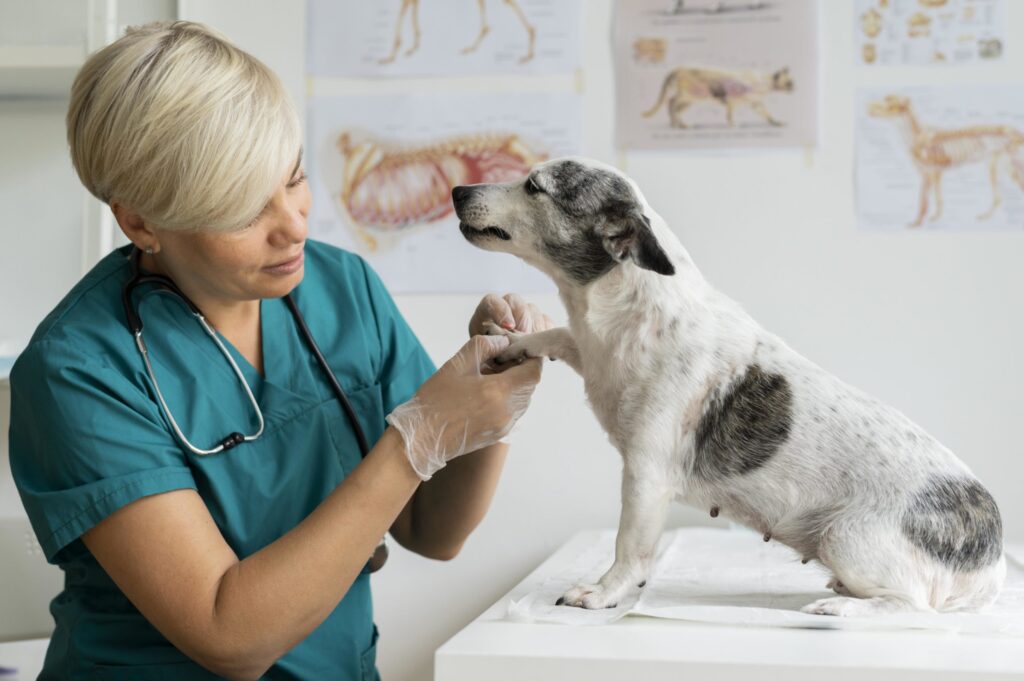Your dog deserves to have a healthy and long life like you. Hence, you must give them a periodic health check and vaccination to sustain their immunity against typical canine diseases. An animal emergency hospital in Kitchener and Waterloo knows vaccinations are incredibly safe, and a few dogs might experience pain at the injection site afterward. Are you still wondering about the importance of immunization in preventing diseases in your furry companion? Let’s find out why!
Types of Diseases Your Dog be Vaccinated Against
- Rabies
It’s a dreadful viral virus affecting every mammal, including cats, dogs, and humans. Vaccination is essential if you intend to travel abroad with your furry companion. This disease is transmitted via the bite of an infected animal. The symptoms of rabies include paralysis, behavioral changes, and death.
- Canine Parainfluenza
It’s a contagious respiratory virus transmitted through airborne elements, and symptoms are nasal discharge, coughing, and fever.
- Canine Distemper
It’s a contagious and destructive virus dispersed via direct contact with an infected animal or airborne exposure. Hence, vaccination is vital for puppies, where symptoms are coughing, fever, and constant discharge from the eyes & nose, leading to serious neurological problems.
- Kennel Cough
It’s an infectious tracheobronchitis that deteriorates a dog’s health. The vaccine is therefore recommended for those who go in kennels to canine clubs or expositions. The kennel cough happens because of several viruses and bacteria, including the parainfluenza virus.
- Canine Adenovirus Type 1 & 2
Type 1 causes infectious canine hepatitis that leads to severe liver damage, whereas type 2 is linked with respiratory ailments in the kennel cough complex.
- Canine Parvovirus
It’s a contagious and weakening disease spreading through infected poops, which makes puppies and unvaccinated dogs mostly at stake. The virus is highly resistant and stays in the environment for several months. Symptoms include lethargy, fever, bloody diarrhea, and vomiting. Therefore, vaccination is the best strategy to prevent this fatal disease.
- Lyme Disease
It’s transmitted through the infected ticks’ bites, caused by the bacteria Borrelia burgdorferi. The leading symptoms of Lyme disease are lameness, fever, lethargy, and swelling of the joints.
Why is Vaccinating Your Dog Crucial?
Vaccinating your pet is essential as it safeguards them from severe and potentially ghastly diseases. They aid in boosting immunity against conditions such as distemper, rabies, and parvovirus, which can be pricey to treat and hazardous to humans and pets. Vaccinations are a proactive strategy in ensuring your pet’s safety and health. Below are some of the reasons to vaccinate your pet:
- Boost immunity
Vaccines help boost immunity once the shield from their mother fades. They facilitate the immune system to generate protective antibodies that combat and counteract diseases, keeping them healthy.

- Mandated by state laws
Many states need rabies and distemper vaccinations by law. While traveling, whether internationally or domestically, it’s vital to go through the guidelines established by your destination.
- Safeguard pets from common diseases
Vaccines are a vital element of preventative vet care. With periodic wellness tests, vaccines are critical to your puppy’s long-term wellness and health.
- Bypasses transmission humans
Dog vaccines also protect public health by thwarting zoonotic diseases like Rabies. It aids in bypassing pricey vet bills to cure severe ailments and helps protect community health by promoting immunity in animal groups.
Conclusion
Vaccinations aren’t 100% guaranteed to thwart diseases, but if your pet is infected by these horrendous pathogens, being vaccinated will create a barrier against those viruses. To minimize the risk further, it’s vital to ensure your pet has a robust immune system by feeding on premium pet food that can mitigate access to hazardous material with top-notch hygiene.

